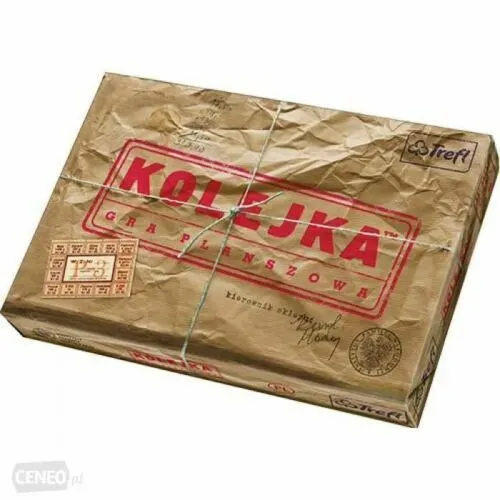Kolejka (2011)
Kolejka
Kolejka, which translates to “queue” or “line” in English, is a board game designed by Karol Madaj and launched in February 2011 by Poland’s Institute of National Remembrance (IPN). The game aims to teach young generations about the hardships under communism (1945–1989), particularly the difficulty of acquiring consumer goods in the shortage economy. Kolejka has become a best-seller in Poland and has been described as inspired by Monopoly.
Why is Kolejka Popular?
Kolejka is popular and significant because it combines humor, history, and nostalgia with slick design and clever, exciting gameplay. The game has been praised for its ability to make history lessons more engaging and accessible for both adults and children. It also serves as an educational tool to remind people of the challenges faced during the communist era, particularly the long lines and shortages of consumer goods.
Game Components of Kolejka
How To Setup Kolejka
To set up **Kolejka**, each player receives a shopping list and five pawns. Players place their pawns in front of various shops, which may or may not have the desired goods. The game includes a board representing different shops and a bazaar. The setup is straightforward, with the main challenge being the unpredictable availability of goods.
Gameplay Mechanics and Game Objective
Player Experience
Playing **Kolejka** is a tactical and engaging experience. Players must navigate the uncertainties of a shortage economy, making strategic decisions about where to place their pawns and when to use event cards. The game’s design ensures that no two games are the same, adding a layer of unpredictability that keeps players on their toes. The educational aspect is woven seamlessly into the gameplay, making it both entertaining and informative.
Pros
Cons
Personal Thoughts on Kolejka
**Kolejka** is an excellent choice for anyone interested in economic and historical board games. It is particularly suited for those who appreciate strategic gameplay and are curious about the historical context of Poland’s communist era. The game’s educational value makes it a great tool for history classes or for families looking to engage in a meaningful and entertaining way. However, it may not be the best fit for players seeking quick, light-hearted games due to its complexity and length.
We are supported by our audience. When you purchase through links on our site, we may earn an affiliate commission, at no extra cost for you. Learn more.

